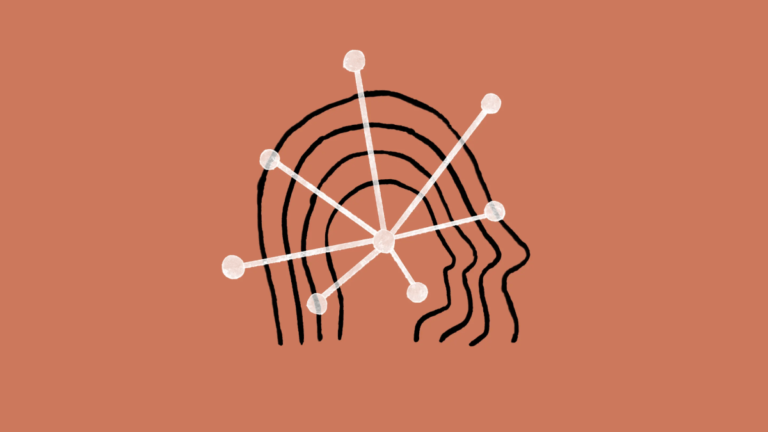
CesiumAstro alleges in a newly filed lawsuit that a former executive disclosed trade secrets and confidential information about sensitive tech, investors, and customers to a competing startup.
Austin-based Cesium develops active phased array and software-defined radio systems for spacecraft, missiles, and drones.
But the suit says that Luther maintained “personal connections” with AnySignal’s cofounders, having worked with AnySignal CEO John Malsbury previously at a different company.
This resulted in AnySignal “recruiting and inducing Luther … to improperly disclose” the confidential and trade secret information, the suit says.
The suit was filed in Western District of Texas under no.

Meta has released the latest entry in its Llama series of open source generative AI models: Llama 3.
Meta describes the new models — Llama 3 8B, which contains 8 billion parameters, and Llama 3 70B, which contains 70 billion parameters — as a “major leap” compared to the previous-gen Llama models, Llama 2 8B and Llama 2 70B, performance-wise.
In fact, Meta says that, for their respective parameter counts, Llama 3 8B and Llama 3 70B — trained on two custom-built 24,000 GPU clusters — are are among the best-performing generative AI models available today.
So what about toxicity and bias, two other common problems with generative AI models (including Llama 2)?
The company’s also releasing a new tool, Code Shield, designed to detect code from generative AI models that might introduce security vulnerabilities.

The CFPB is permanently banning BloomTech from consumer lending activities and its CEO, Austen Allred, from student lending for a period of ten years.
Allred founded BloomTech, which rebranded from the Lambda School in 2022 after cutting half its staff, in 2017.
(According to the CFPB, BloomTech originated “at least” 11,000 such loans.)
BloomTech didn’t market the loans as such, saying that they didn’t create debt and were “risk free,” and advertised a 71%-86% job placement rate.
And, unbeknownst to many students, BloomTech was selling a portion of its loans to investors while depriving recipients of rights they should’ve had under a federal protection known as the Holder Rule.

PayPal Ventures’ latest investment is in an Indonesian startup that provides personal insurance products covering a variety of risks, including accidents, phone screen damage, and ticket cancellations.
Qoala has secured $47 million in a new round co-led by PayPal Ventures and MassMutual Ventures, the five-year-old startup said Wednesday.
Qoala, headquartered in Jakarta, is an insurance broker that works with top local insurers and e-commerce firms to offer customers personalized and affordable products.
The startup sells these insurance both through its website and app as well as through offline engagements.
“It is commendable to see what Qoala has achieved in a short period of time,” said Alexandros Bottenbruch, Principal at PayPal Ventures in a statement.

Apple’s iPhone antitrust lawsuit: Everything we know so far on the DOJ’s case U.S. regulators are accusing Apple of operating like a monopoly, and the implications of the case stretch far beyond iOS and iPhones themselvesApple’s antitrust scrutiny has reached a fever pitch.
We’ll be updating this page as the Apple antitrust case evolves, but keep in mind that there will be little settled in the short term.
The DOJ’s claims against AppleIf you want to dive into legal docs immediately, you can read the DOJ’s lawsuit right here.
The DOJ’s antitrust case against Google, which was filed back in 2020, went to trial last year and could still take a couple more years to reach a conclusion.
For more on Apple’s antitrust lawsuit, check here:

But one category in particular caught our attention as the DOJ spends quite a bit of time talking about “green bubbles” and “blue bubbles.”When an iPhone user sends a message to another iPhone user, by default that message is sent using Apple’s iMessage protocol.
If an iPhone user texts an Android user — and vice versa — iOS falls back to the older, less secure but universal SMS protocol.
“Apple makes third-party messaging apps on the iPhone worse generally and relative to Apple Messages, Apple’s own messaging app,” the DOJ wrote in its lawsuit.
At this point, you might think: wasn’t the RCS protocol supposed to level up SMS messaging and alleviate these pain points?
It feels a bit odd that the DOJ is front-loading its antitrust lawsuit against Apple with the much talked about “green bubbles” vs. “blue bubbles” debate as there are far more serious and substantive issues.

The United States Department of Justice this morning filed a lawsuit accusing Apple of monopolistic smartphone practices.
Apple swiftly countered by arguing that — if successful — such a suit would inhibit its ability to compete in the crowded smartphone market.
This lawsuit threatens who we are and the principles that set Apple products apart in fiercely competitive markets.
We believe this lawsuit is wrong on the facts and the law, and we will vigorously defend against it.
At the same time, Apple has also been embroiled in lawsuits from Epic Games, challenging its App Store revenue practices.

Almost a decade ago, Desktop Metal was one of the early darlings in accessible 3D printing in metal.
Last year, Stratasys tried to merge with Desktop Metal in a $1.8 billion deal, but the deal fell through, and these days, Desktop Metal is worth less than $210 million.
In June 2020, he split off and started his own thing — Fluent Metal — which is taking a different technology path than Desktop Metal’s technology.
It accomplishes this through liquid metal printing technology, which it hopes will set a new standard in additive manufacturing.
“In the near term, Fluent Metal will spark the imagination of designers, engineers, and technologists to consider how rapid, on-demand production of custom metal parts could transform their capabilities.

Heidy Khlaaf is an engineering director at the cybersecurity firm Trail of Bits.
She specializes in evaluating software and AI implementations within “safety critical” systems, like nuclear power plants and autonomous vehicles.
Imposter syndrome has a strong hold on women within tech, and leads many to doubt their own scientific integrity.
The way AI systems are trained embed human bias and discrimination within their outputs that become “de facto” and automated.
AI systems should not be exempt from standard auditing processes that are well-established to ensure public and consumer protection.

All show “increased capabilities” in analysis and forecasting, Anthropic claims, as well as enhanced performance on specific benchmarks versus models like GPT-4 (but not GPT-4 Turbo) and Google’s Gemini 1.0 Ultra (but not Gemini 1.5 Pro).
A model’s context, or context window, refers to input data (e.g.
In a technical whitepaper, Anthropic admits that Claude 3 isn’t immune from the issues plaguing other GenAI models, namely bias and hallucinations (i.e.
Unlike some GenAI models, Claude 3 can’t search the web; the models can only answer questions using data from before August 2023.
Here’s the pricing breakdown:Opus: $15 per million input tokens, $75 per million output tokensSonnet: $3 per million input tokens, $15 per million output tokensHaiku: $0.25 per million input tokens, $1.25 per million output tokensSo that’s Claude 3.













